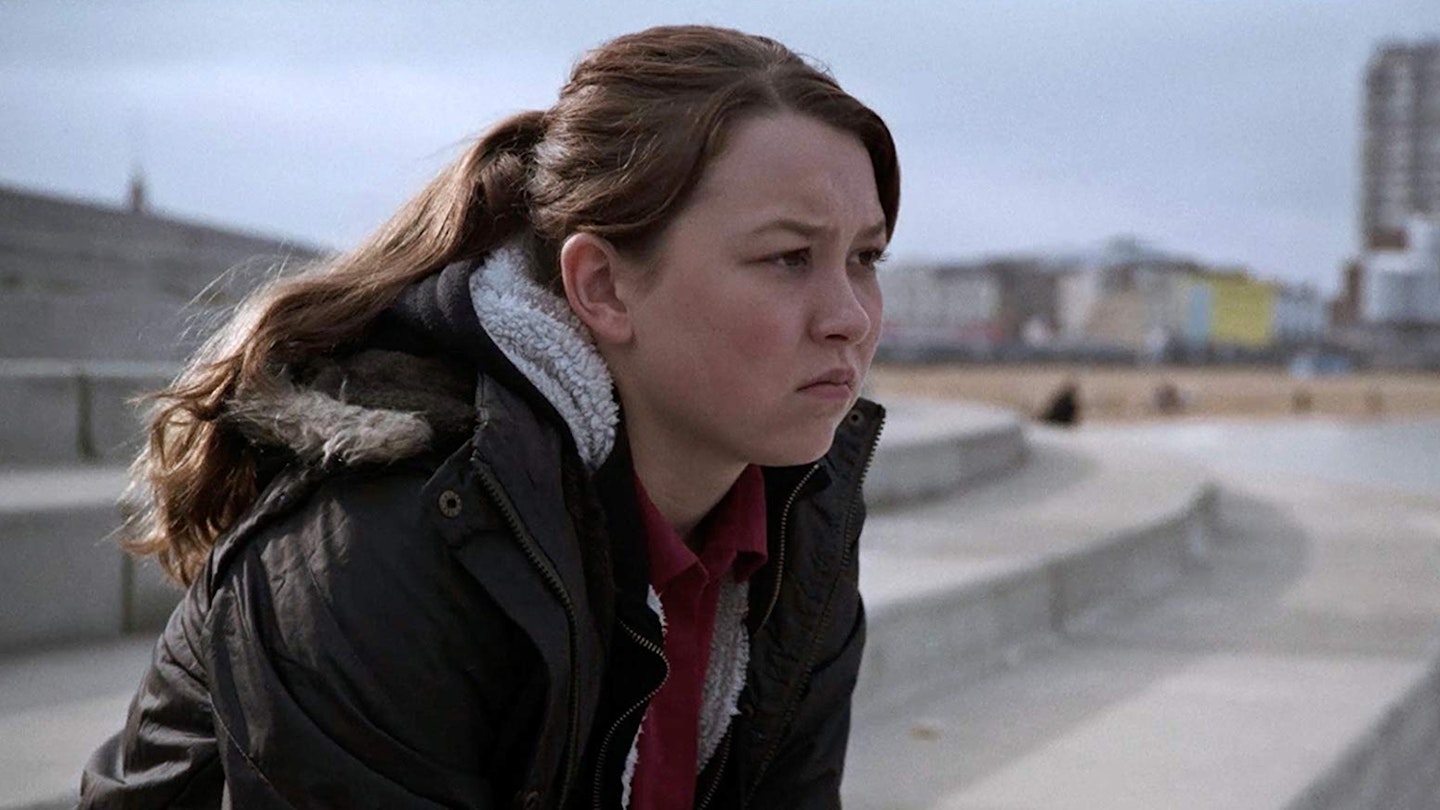Set in the kind of depressed seaside town in winter that Morrissey writes songs about, James Gardner’s Jellyfish is a character study of troubled teenager Sarah. She is the primary caretaker in a financially/emotionally depleted family consisting of a bipolar mother (Sinead Matthews) and two lively twins (Henry Lile, Jemima Newman) too young to understand the bleakness of their circumstances.

Sarah has it tough outside the nest, too. Bullied and blanked at school, she works in a low-rent amusement arcade, servicing the obese clientele with hand-shandies in a back alley for extra cash. With her mother forgetting to pay the rent, she is forced into other money-making schemes involving seducing a local estate agent king (Tomos Eames) and then blackmailing him by revealing she is under-age — the scene ends with a Hitchcockian use of a camera withdrawing from the horror into a busy street.
The film's MVP is Liv Hill.
It’s hardly a wonderful life — the avalanche of misery Gardner piles on stretches credulity — but an outlet for Sarah’s frustrations comes when her drama teacher (the ever-dependable Cyril Nri) suggests she tries stand-up comedy for an upcoming performance at a local theatre. Discovering the likes of Bill Hicks, Richard Pryor, George Carlin, Frankie Boyle and Katherine Ryan, she develops an act that is realistic and raw — but don’t expect her to land a Netflix special anytime soon.
The story arc is familiar, marred by contrivance (especially at the end) and it doesn’t really offer any fresh insight into marginalised lives. But it gets by on sensitivity for its dispossessed characters and the performances. Matthews as Sarah’s mother inhabits both the volatile mood swings and the knowingness that she is making her daughter’s life a nightmare. But the film’s MVP is Liv Hill (star of BBCs Three Girls), who presents Sarah as the model of teenage toughness and surliness but slowly reveals her more vulnerable sides. There is a tenderness to Jellyfish that bodes well for Gardner’s future; in testament, look out for cinema’s most poignant use of Monster Munch.
